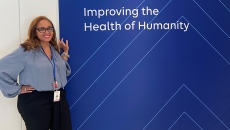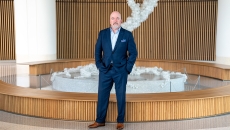Bill Siwicki
Ahead of her appearance at the HIMSS Healthcare Cybersecurity Forum, an information security expert from MITRE offers advice on ways provider organizations can prepare for the worst in a complex and wildly fluctuating threat landscape.
Success Stories & ROI
In a partnership with the Denver Housing Authority, the health system has installed on-site equipment and held monthly workshops – increasing patient portal activation to 63% from 58% across five DHA communities.
MITRE's Dr. Brian Anderson talks about the pros and cons of AI in cybersecurity – and the role of generative AI like ChatGPT – in a preview of his panel session at the upcoming HIMSS Healthcare Cybersecurity Forum.
Administrative burden is a huge challenge, and technology often exacerbates it. But is there a better way forward? IT is underleveraged as a way to help clinicians spend more time with their patients, says one expert.
With remote therapeutic monitoring, care teams are alerted and can intervene quickly when a patient is concerned or isn’t progressing as expected. Early action potentially can prevent complications and avoid unnecessary ED visits.
That said, despite its current limitations – it will never replace "empathy, listening, respect, personal preference" – it's clear artificial intelligence is leading to fundamental changes in care delivery, says the IT innovator, who predicts "doctors and nurses who use AI will replace doctors and nurses who don't."
Kamala Green, social drivers of health program manager at National Government Services, explains how the law and other efforts like it will address challenges around SDOH to make quality care accessible to all.
Technology, equity, workforce and policy are key, says Dr. Oscar Alleyne, managing director of the public health division inside the federally funded research and development center operated by MITRE.
A small but growing number of health systems have entity services staffed by a variety of these "mini" chief information officers. John P. Donohue, an EIO at Penn Medicine, offers a closer look at this emerging role, often staffed by hiring CIOs from small community hospitals.
At One Brooklyn Health System, tools such as the Brooklyn Health Equity Index survey are helping serve up valuable real-time insights to help develop training, policies and procedures that address racial disparities and social determinants.










